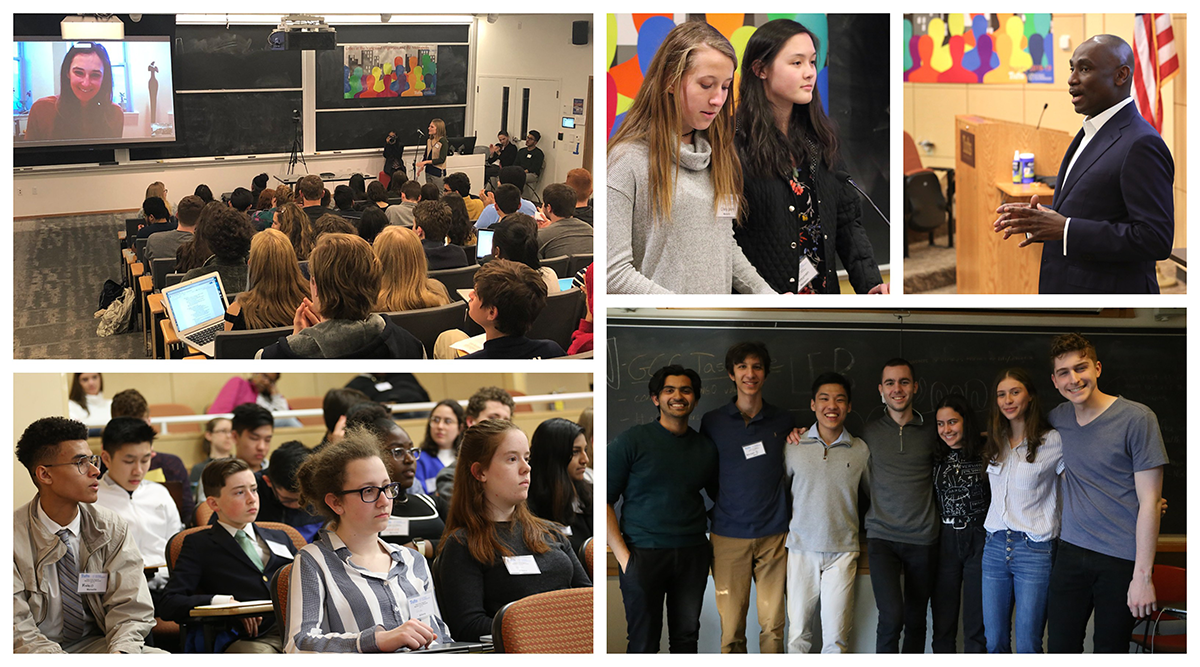Inquiry 2019: The Frontlines of Migration

This year’s Inquiry program focused on cities as the frontlines of the opportunities and challenges of mass migration movements. While decision-making on migration policies is focused at national and international levels, it is cities and local governments that face the humanitarian, economic and security repercussions directly.
The EPIIC Inquiry Committee worked throughout the first semester to determine the best way to tackle the issue of “Migration in a Turbulent World” in a simulation and to introduce the topic to the high school students, reading a broad range of articles and book excerpts.
The main issues they decided on became the organizing committees: Leadership and Governance, Urban Planning, Economic Integration, Social Cohesion, Youth and Education, Health, and Resilience.
The Inquiry Committee chose a range of cities with large numbers of migrants and refugees for the roles that the high school delegations would represent: Athens, Beirut, Berlin, Dakar, Dhaka, Dubai, London, Marseille, Medellin, Moscow, Nairobi, New York City, Sydney, Tijuana, and Toronto. For the April simulation, 200 high school students participated from Atlanta, the greater Boston area, Chicago, and New York City.
Inquiry also worked again with Education Department Senior Lecturer Steven Cohen and his M.A.T. students on facilitation skills and classroom management in preparation for the simulation.
As the simulation was convening, there were protests in Athens over the treatment of migrants, Beirut was struggling with its resources and sanitation given the large influx of refugees, Berlin was contending with tensions between new arrivals and established immigrants, Dhaka was receiving large numbers of internal migrants, France was denying entry to a Marseille-bound migrant rescue ship, Medellin and all of Colombia were flooded with people leaving Venezuela in the region’s worst humanitarian crisis in decades, Australia was planning to cut the number of migrants the country would receive, and Toronto was sheltering hundreds of asylum seekers.
To get a sense of the students’ deliberations, Inquiry created a blog site for each of the two simultaneous simulations: https://2019athensmigration.home.blog and
https://2019torontomigration.home.blog.
The simulation featured two speakers: IGL Director Abi Williams gave the Hunter Farnham Inquiry Memorial Lecture on “Migration in a Turbulent World”. Dr. Williams is also a Professor of the Practice of International Politics at The Fletcher School of Law and Diplomacy at Tufts.
The second lecture was given by IGL Alumna Rachel Brown. Rachel is the Executive Director of Over Zero. Over Zero supports societies to resist division and create long-term resilience to identity-based conflict through trainings, strategy advising, piloting and testing new approaches, and supporting interdisciplinary research. She is the author of Defusing Hate: A Strategic Communication Guide to Counteract Dangerous Speech.
